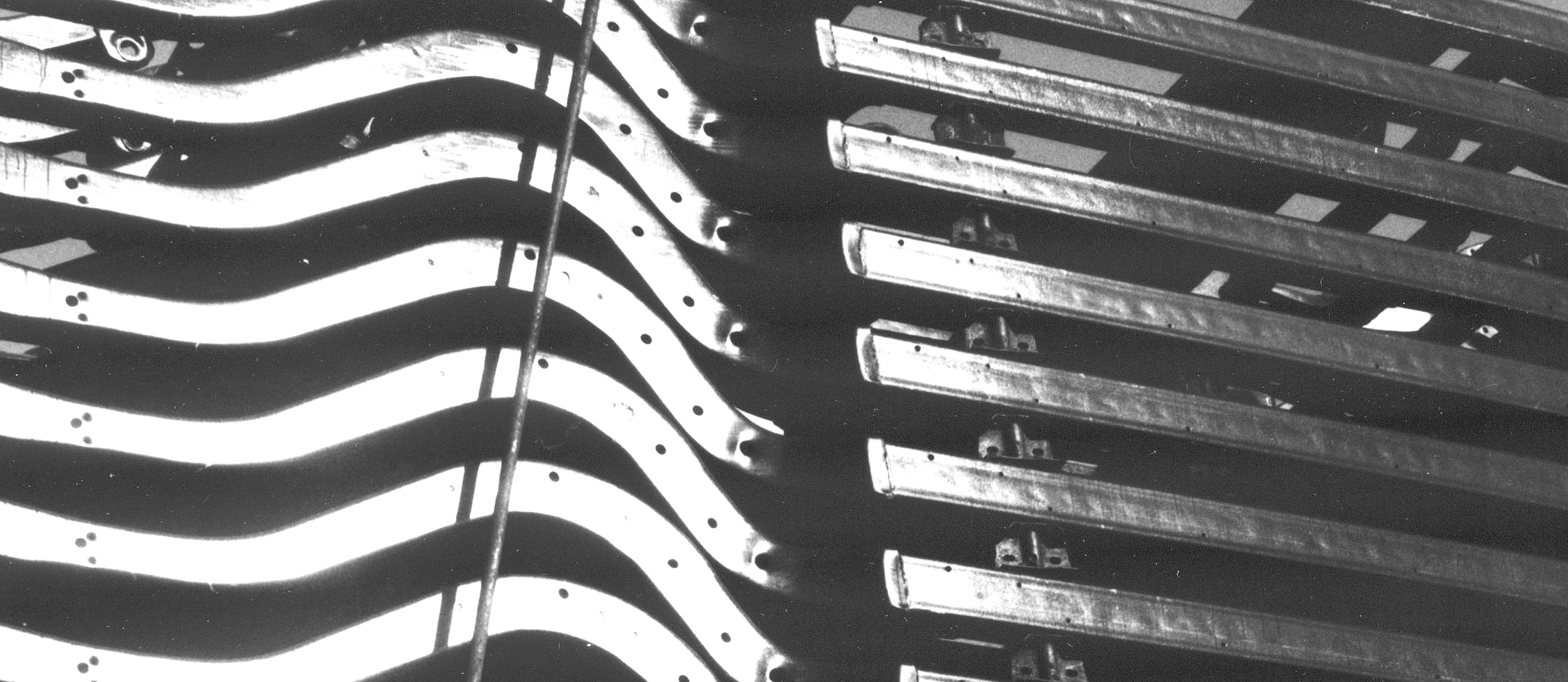I spotted this over at John Scalzi’s Whatever and it brought back some memories.
A woman in Ohio has received a felony conviction for deceptively sending her kids to a school in a district where she didn’t live. Her father colluded in this. The article linked doesn’t go into the reasons she did what she did, but I can imagine some of them, and it would have entirely to do with quality of school experience.
Fifty years ago, my schooling experience—and I phrase it that way because I’m talking about much more than just what you learn in the classroom; it’s a total package, going to socialization and self-image and the whole magilla that a lot of people condemning American public education, depending on their political slant, don’t want to think about—was in the process of being thoroughly fucked up. Had I not been an avid reader at an early ago outside of school…
Not knowing the particulars of the Ohio case, I’ll just talk about mine. I’ve detailed some of this before, but it’s worth going over it again as a reminder.
My birthday is in October. Back in the day, my mother dutifully tried to enroll me in school for the school year during which I would have been five. But at the time of enrollment, I was only four. They refused me. “Bring him back next year,” they told my mother, who tried, I imagine, valiantly to explain the problem, which was that I’d end up functionally a year behind. But the district was adamant. Bring him back when he is five.
So I had a whole year of not going to school when many of my friends were. Not to worry, I didn’t give that much of a damn. I was pretty much a loner anyway, even then, because, for whatever reason, I didn’t quite fit with everyone else.
The following September, we’re back at the school, and this time they accepted me. I entered kindergarten.
And six weeks later, when I turned six, they pulled me and five others who had the same calendrical malfunction out of kindergarten and moved us directly across the hall into first grade.
Our first grade teacher—I remember her vividly, a tallish Nordic blonde with a thin face and large, pale blue eyes—made it clear from the beginning that she regarded the six of us as a nuisance. “Get with one of the others and catch up,” she said. “I’m not spending any time making up for you’re not being here at the beginning of the year.”
I could read already and, if I recall correctly, so could Debbie Blake, but the others? Don’t know. I quickly became absorbed into my own problems, which became legion in my young mind. Within a month I could honestly say that I hated school.
Not just the teacher and the sudden load of curricula which the six weeks of kindergarten had not prepared me, but the whole experience. My new classmates made me feel slow and stupid and began a pattern of torment that last the next eight years. My teacher, who apparently recognized that I was probably above average, began a round of parent-teacher meetings designed, I thought, to humiliate me—“he’s a bright child but not performing up to his potential.” I just didn’t understand. And it didn’t improve. I suspect that nine months of kindergarten I should have gotten bore directly on the socialization I was now forced to “catch up” with in a couple of weeks.
My parents moved during my third grade year. It put me in a new school district. I actually had made no real friends to miss, so it was no big deal to me. But.
The district line ran, apparently, down the center of my street, and that put me in the Grant School district instead of the Shenendoah district. Shenendoah was four blocks away. Grant was a mile and a half. Grant—I did not know this at the time, but my parents did—had a bad reputation. (Shenendoah soon would, but not yet.) I was already obviously having trouble at school from bullying and such and my parents were reluctant to send me to a school, so far away, where the problems might be worse.
But also—and I didn’t find this out until much later—my performance disappointed them and my dad, for one, thought I had a discipline problem. Corporal punishment had been outlawed in the public school system. Dad was a believer in the spanking. My poor grades and lack of attention in class, he thought, were directly related to an inability on the part of the teachers to effectively discipline me. So, public school was probably not where I belonged.
I was summarily enrolled in a private school, Emmaus Lutheran, about ten blocks away, and I entered the fray midway through third grade and there I stayed through eighth.
My performance did not improve. Nor was I ever spanked for poor discipline. That, it turned out, was not the problem. (The bullying soon resumed and continued. Enough about that.)
I continued reading on my own and by a curious quirk of circumstance my dad began a long stretch of dinner table dialogues with me that can only be described as philosophical primers—my parents were lapsed Mormons, I was attending a Lutheran school, dad was determined I not swallow the party line whole, and we argued and debated our way through the rest of my grade school, all in an attempt to keep me from being brain washed.
My next school problem came my senior year of high school. High school improved somewhat. Because of the round of different teachers, my performance in one class did not poison it in another, and I could be selective about what I chose to pay attention to. My grades went up because, frankly, I was more interested. The bullying had stopped (although I had more fights my Freshman year than the previous two) and I began to acquire the armor of the loner who will not be messed with.
Roosevelt High School was what could best be described as a blue-collar industrial school. It had been built and its traditions established when the expectation was that most of its graduates would end up driving trucks for Anheuser-Busch or going into some other local industry. It was struggling to come to terms with a changed mission during the Sixties and hadn’t quite succeeded. I became deeply fascinated with photography. They had no course in it. I was already interested in writing, but the Journalism class was one year and only half a credit. In other words, both my fields of interest were pretty much unsupported.
Senior year, I entered a work-study program which gave me a morning of class work and let me off to work part time in the afternoon. My very first job ever, acquired over the summer, didn’t survive past October. I “contrived” to game the system to stay in the program and pretended to have a job. I was also cutting a lot of classes and days that year—sheer, unadulterated boredom (plus I think I had mono that year, but since I never went to the doctor I can’t say for sure, but it was pretty awful). In any event, because I’d taken senior English in summer school (to avoid getting a particular teacher who would undoubtedly have flunked me for personal reasons) and because I had carried a larger course load (somehow) the previous year, I had more than enough credits to graduate that January, getting out early. I plead lethargy for not having done it. I’d finally gotten a situation where I didn’t mind it so much and didn’t have anything else to do.
But. I answered a job ad at the state hospital in February. It was for a photography trainee. Note—this was 1973. The job would have been under the resident photography at the hospital as an apprentice. I would have been trained to do portraits, copy work, photomicrography, color lab work, the whole bit. The guy loved me. Saw my work, the interview went like a dream—and the starting pay was four dollars and hour. Trust me, for an 18-year-old at the time, this was a fortune.
The only hitch was I didn’t have my diploma. I explained the academic situation and begged a grace period so I could get it, since I had fulfilled my qualifications. I went back to school to do that and was told No. I had not taken that option in the fall, I was stuck with completing the school year.
I begged. Both of them. The school wouldn’t yield, the photographer refused to hire me, telling me that I really needed that diploma and that he’d be doing me a disservice by allowing me to quit school without it.
Bureaucracy. I was, basically, fucked.
Who knows where that might have led? A path cauterized. I do not regret it. I’ve had a ball living the life I’ve led. But I still get incensed over schools standing on their petty rules at the expense of a child’s educational experience. It makes their bookkeeping easy and can often result in damaging the child’s future.
Was the photographer right? I have never been required to prove I graduated high school, anywhere, by anyone. They take your word for it. In my field, it was what you could do that mattered more than where you’ve been educated.
So I’m thinking this woman in Ohio was trying her best to meet some impossible requirements. Depressed housing market (let’s assume) and she couldn’t sell her house in order to move, the job she had was where she lived, the school she wanted her children in was in another district…not to put to fine a point on it, but all the opponents of vouchers and charter schools should be aware that this is part of the reason a lot of people are looking at those options as agreeably as they do.
And just as a side note, sort of tangentially, consider that idiot governor in Texas recently pronouncing on what he sees as “frivolous” educational options. To quote Governor Perry:
Well, there is a lot of fat to cut from our public schools, especially those in our biggest urban areas like Houston and Dallas. I am concerned that some the highly diverse Magnet public schools in this city are becoming hotbeds for liberalism. Do we really need free school bus service, Black History Month, Hispanic Heritage Month, Asian-Pacific Heritage Month, ESL, special needs and enrichment programs like music, art or math Olympiad? I think we should get back to the basics of the three Rs, reading writing and arithmetic. I mean when is the last time a 6th grade science fair project yielded a cure for a disease?
It doesn’t work well, so let’s fuck it up some more, shall we? Take all the stuff that’s worthwhile and cut it, so we can educate a bunch of truck drivers, processed food workers, and cheap laborers who can compete with illegal immigrants. (I’m being sarcastic there, please note.)
You know what I would do if I were king? I would change the entire school system to this: fund it at at least half the level of current military spending. All schools would be open 24/7. Kids could go at any time and find classes in session. Kids could go to any school they chose (within reason). I would also make all schools safe havens, staffed with paralegals, nurses, and law enforcement so kids from abusive homes could feel protected if they had to get out. I would pay whatever it took to feed a child’s imagination. I would also extend that to make parents mandatorily involved and provide counseling for those parents who didn’t know what the hell they were doing. The schools would be geared entirely for the benefit of the children, not the parents, not local businesses, and certainly not the bureaucracy. I would put advanced curricula in the primary schools. A lot of kids might not “get it” but there will always be those who will catch on quickly, even kids from backgrounds most people might think unlikely. But I would expose all these kids to meaty material from the get-go instead of waiting till they get to college—if they get to college, which for many of them might be too late. I would bar all recruiters of any kind from the schools and I would bring in a regular round of professionals in as many fields as I could to do workshops.
That’s what I would do if I were king. We’re nickle-and-diming out kids into stupidity and penalizing some parents who try to do the right thing for their children. For every educational worker who pushes the envelope to improve the system, there seem to be a hundred know-nothings bitching about the cost and arguing over what’s being taught. This has got to stop.
Okay, end of rant. I feel marginally better.



